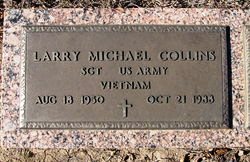Inside the Supreme Court
Petition to Decision
Papers of Supreme Court Justices on Civil Rights Cases
David Achtenberg
Professor & Law Foundation Scholar
UMKC School of Law
Kansas City, MO 64110-2499
816-235-2382
|
Petition to Decision Home Page |
| Archive |
| Timeline |
|
Researcher Information |
| Case Selection Page |
503 U.S. 115 (1991)
|
The Archive The Justice's Papers in Archive Order |
The Timeline Chronology with Links to Papers |
Researcher Information Materials for Further Research |
|
Collins' Legal Significance |
Collins' Background Story |
|
Sometimes, an implausible legal theory somehow gains currency in the lower courts and the Supreme Court has to step in to set things straight. In Collins v. City of Harker Heights, the Court rejected not one but two such unlikely theories—both dealing with §1983 suits between municipal employees and their employers. The first was the Fifth Circuit's odd line of cases under which a city's violation of its employee's constitutional rights could not be remedied under §1983 since the city was acting "in its capacity as an employer rather than as a governing authority" and thus was not abusing governmental power. In oral argument, Harker Heights' attorney did not even attempt to defend this "abuse of governmental authority" requirement, perhaps because several of the Supreme Court's best known §1983 opinions (e.g., Monell v. Department of Social Services and Owen v. City of Independence) had upheld suits by government employees against their employers. The Supreme Court quickly rejected the Fifth Circuit's position, pointing out that an "abuse of governmental authority" requirement would immunize a city that retaliated against employees for exercising free speech rights or discriminated against them because of their gender. The Court then turned to an argument that had had gained traction among many in the plaintiffs' bar—the theory that a municipality violated its employees' constitutional rights if it was "deliberately indifferent" to their on-the-job safety. While this theory drew some support from cases (like City of Canton v. Harris) dealing with municipal liability for failure to train and from various cases dealing with jail and prison conditions, it ran into an insurmountable practical obstacle: it threatened to turn routine municipal worker compensation cases into federal constitutional disputes. The Supreme Court made short work of this theory holding that the due process clause did not give public employees a constitutional right to a safe workplace or to well-trained fellow employees and supervisors. |
Despite this danger, Collins was sent into the manhole without any safety devices. Shortly after entering the sewer system, he lost consciousness and died of oxygen deprivation shortly thereafter. He was thirty-eight years old. Collins' widow Myra Jo Collins received worker compensation benefits but sought further relief on the basis that the city had violated her husband's constitutional right not to be deprived of his life. She alleged that the City was well aware of the risk involved, had failed to train its employees and supervisors to avoid the risk and had failed to provide appropriate safety equipment as required by the Texas Hazard Communications Act. She further alleged that the danger was so apparent and this failure so egregious that it demonstrated deliberate indifference to Collins' constitutional right to life. The United States District Court dismissed Ms. Collins claims and the Court of Appeal for the Fifth Circuit affirmed that dismissal. As discussed to the left, the Supreme Court also affirmed, and Ms. Collins recovered nothing. She died six years later at age forty-one.
|
 In
July of 1988, Larry Michael Collins began working for the sanitation
department of the City of Harker Heights, Texas. On October
21, 1988, his supervisor told him to climb into an eighteen foot manhole
to unblock a clogged sewer line. Working in underground sewer
lines is dangerous since sewage decomposes producing methane which can
drive out oxygen. In fact, Collins' supervisor had himself
been removed from a sewer earlier that year after becoming unconscious
from lack of oxygen.
In
July of 1988, Larry Michael Collins began working for the sanitation
department of the City of Harker Heights, Texas. On October
21, 1988, his supervisor told him to climb into an eighteen foot manhole
to unblock a clogged sewer line. Working in underground sewer
lines is dangerous since sewage decomposes producing methane which can
drive out oxygen. In fact, Collins' supervisor had himself
been removed from a sewer earlier that year after becoming unconscious
from lack of oxygen.